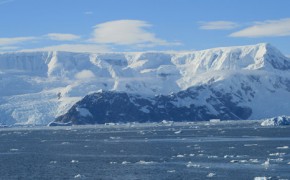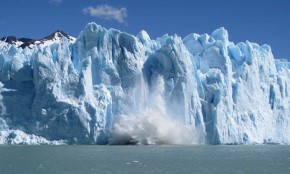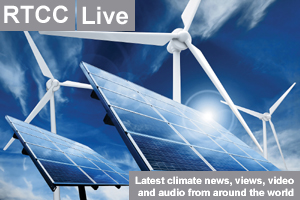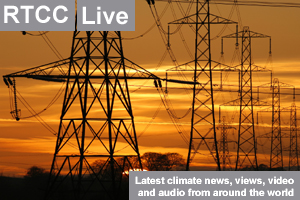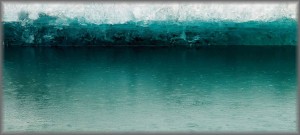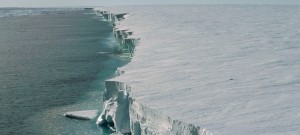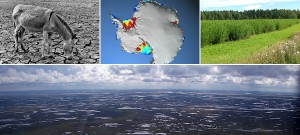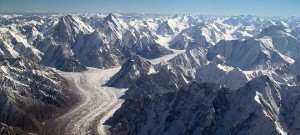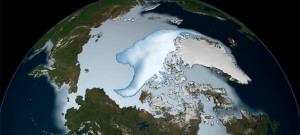Ice Melt
Greenland ice melt ‘accelerating’ say scientists
NEWS: Greenland’s ice loss is accelerating, suggesting that the edges of the entire ice cap may be unstable
Scientists uncertain over rate of polar ice loss
Glaciologists cannot say for certain whether the Earth’s north and south polar ice is melting faster as the years pass
Greenland’s ‘land ice melt’ likely to drive up global sea levels
Surface melting of the Greenland ice sheet will add more to global sea levels than the island’s glaciers – but even a modest rise could have serious consequences
Third highest rate of glacier melt observed
Latest data from more than 100 glaciers around the world consistent with increasing rates of melting
Climate scientists say sea level rise estimates must be increased
Sea levels could rise by one metre by 2100 once ice sheet melt is factored in accurately, say leading glaciologists
UNEP: Pollution from shipping and oil exploration could accelerate Arctic ice thaw
UN Environment Programme says that the effects of even small amounts of pollution on the Arctic Ocean have not been fully assessed.
Climate Live: EU to investigate China solar panel imports & Danish Minister calls for climate to top political agenda
Today’s top headlines – EU to investigate China solar panel imports, Danish Minister calls for climate to top political agenda and President Putin flies with the cranes.
Melting over Greenland ice sheet shatters record, say scientists
Latest data shows melting over the Greenland ice sheet in 2012, has surpassed previous seasonal records – four weeks before the melting season is expected to end.
Greenland ice loss comes in fits and starts say scientists
New research finds Greenland’s ice sheet melt could happen in short bursts, showing that the melt witnessed between 2005 and 2010 may not have been unprecedented.
Climate Live: MPs call on UK to eliminate fossil fuel subsidies, EU takes action against emission trading surplus & NASA reports ‘extreme melt’ in Greenland
Today’s top headlines: MPs call on UK to eliminate fossil fuel subsidies, US official says cutting air pollutant could ‘buy time’ in fight against climate change, and extreme melt event in Greenland.
NASA reports “extreme melt” of Greenland ice sheet underway but climate change link unconfirmed
Indian/NASA collaboration reveals 97% of ice surface area has begun to melt, more than double the usual extent during summer. However, more data required to attribute melting to climate change.
Arctic ice melt sets stage for severe winters in US and Europe
New research warns that Arctic ice melt from climate change could increase the risk of severe winter weather in the US and Europe.
Photo of the week #17 – Greenland’s disappearing glaciers
This week’s photo of the week shows the implications of glacier melt in Greenland on rising sea levels.
Weddell Sea region in West Antarctic could be on brink of change
Two new studies show the Weddell Sea sector of the West Antarctic ice sheet – previously regarded as stable – could be a region of great concern in the future.
A week in climate change: five things we learnt
Positive action on desertification, climate change migration and sustainable biofuels, it’s been a busy week for climate change. Here’s what the team at RTCC has learnt this week.
Warm oceans are driving ice loss in Antarctica, says study
A new study by NASA used laser data to track the thinning of Antarctic ice shelves, finding warm oceans could be a dominant factor in ice loss in the region – bringing researchers closer to predicting sea level rises.
Asian glaciers bucking trend of climate change ice melt
Satellite models from the Karakoram mountains north of Himalaya show marginal growth but area remains a one-off, according to new research.
Previous 2°C warming triggered 20m sea level rises
Rock and soil samples from 3 million years ago match predicted modern-day warming with larger than expected rises in sea level.
NASA: Arctic’s oldest sea ice disappearing fastest
The arctic’s oldest ice disappearing faster than newer, thinner ice according to a new study from a NASA scientist.
